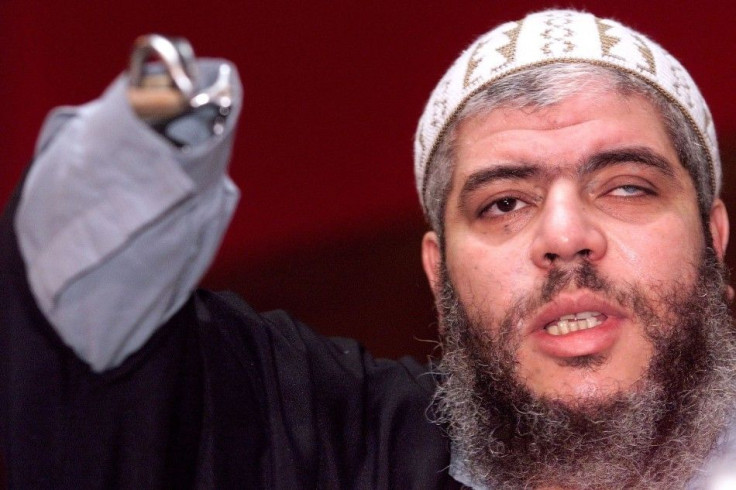EU Court Backs UK Extradition Of 5 Terror Suspects To US

U.K. authorities can extradite a radical Muslim cleric and four other suspects to the United States to face terrorism charges, the European Court of Human Rights ruled Tuesday.
Abu Hamza al-Masri, also known as Mustafa Kamal Mustafa, has been jailed for eight years in Britain awaiting trial. He and the other four men had been fighting extradition, saying they would face inhumane conditions if turned over to the U.S. justice system, specifically their likely detention at a supermax federal prison in Colorado that houses terrorism suspects before trial.
The court, based in Strasbourg, France, found that extraditing the five wouldn't violate Article 3 of the European Union's Convention on Human Rights, which bars inhuman and degrading treatment, but it allowed a three-month stay for an appeal.
The other suspects are Babar Ahmad, Syed Tahla Ahsan, Adel Abdul Bary and Khaled al-Fawwaz.
The United States accuses al-Masri, an Egyptian native who was granted British citizenship in 1986, of being in contact with Taliban and al Qaeda terrorists. He is wanted on 11 charges related to the taking of 16 hostages in Yemen in 1998, an incident that resulted in the death of three U.K. citizens; promoting violent jihad in Afghanistan in 2001; and trying to set up a jihad training camp in Oregon in 1999.
U.S. authorities have described al-Masri as a terrorist facilitator with a global reach.
The human-rights court on Tuesday decided to adjourn the case of a sixth man in the same case, Haroon Rashid Aswat, and invited parties to submit information on his mental health and how this would affect U.S. judicial proceedings.
Al-Masri, 53, who is blind in one eye and uses a hook for one hand, was ordered in Britain in 2007 to serve a seven-year prison term for inciting followers to murder nonbelievers.
The Strasbourg court had previously halted the extradition of al-Masri and three of the other men on terror charges, saying the case needed further examination.
The court later found that, given U.S. assurances, that there was no real risk the men would either be designated as enemy combatants and be subject to the death penalty or subjected to extraordinary rendition.
Among the four other suspects, Ahmad is accused by U.S. authorities of running a website that raised money for Islamic extremists; he and Ahsan are also said to have supported terrorists and allegedly conspired to kill and maim. Aswat is accused of conspiring to help al-Masri set up the jihad training camp in Oregon.
U.K. Prime Minister David Cameron said he was very pleased with Tuesday's ruling, the BBC reported.
It is quite right that we have proper legal processes, although sometimes one can get frustrated with how long they take, he said.
British Home Secretary Theresa May also welcomed the decision, saying the U.K. government will work to see that the suspects are handed over to U.S. authorities as soon as possible.
Ahmad's father, Ashfaq, said he and his family were very disappointed by the court's decision, calling it a serious abuse of process.
Faras Baloch, a legal adviser to Ahmad's family, said its best chance of fighting extradition now lies in getting a trial in Britain.
We are going to press for him to be tried in the U.K., Baloch was quoted by the Associated Press as saying. Justice, he said, shouldn't be outsourced to the United States.
Ahmad's brother-in-law, Fahad Ansari, said the family hoped to appeal to the human-rights court's grand chamber. He questioned the alleged torture and inhuman and degrading treatment in U.S. supermax prisons. It is completely inhumane and no country can justify sending one of its citizens to such a scenario, he said.
Two other cases were also considered by the European court, which decided U.S. extradition wouldn't violate EU human rights laws.
Khalid al-Fawwaz, a Saudi citizen, and Adel Abdul Bary, who is Egyptian, are wanted over the 1998 bombings of two U.S. embassies in Kenya and Tanzania that killed 224 people. Al-Fawwaz, allegedly Osama bin Laden's representative in Britain, has been charged with more than 269 counts of murder.
© Copyright IBTimes 2025. All rights reserved.





















